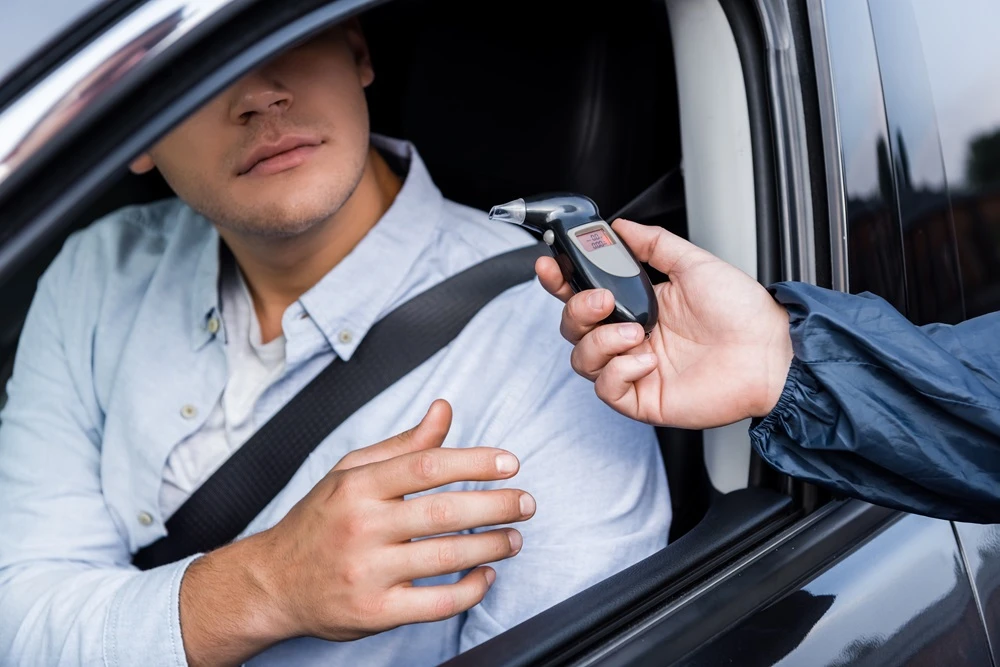If you’ve recently been hit with an OVI charge, or even just heard the term thrown around, you might be feeling confused, anxious, or overwhelmed. OVI—Operating a Vehicle Impaired—is Ohio’s version of what other states call DUI or DWI. It sounds simple on the surface, but the truth is, the OVI charge is surrounded by myths, half-truths, and assumptions that can trip people up at every stage of the legal process.
This article aims to set the record straight. We’ll walk through the common misconceptions about OVI charges, explain what’s fact and what’s fiction, and show you how misunderstanding the law could cost you your license, your job, or your freedom.
Let’s dive into what an OVI charge really means, and why it’s more serious—and more misunderstood—than most people realize.
What Is an OVI Charge?
To start, let’s clear up what an OVI charge actually is. In Ohio, OVI stands for Operating a Vehicle Impaired. It’s the legal term used when someone is accused of operating a vehicle under the influence of alcohol, drugs, or a combination of both. This includes not just cars, but anything with wheels including ATVs, boats, and even bicycles in some situations.
An OVI charge can result from:
- A blood alcohol content (BAC) of 0.08% or higher
- Drug impairment (even prescription drugs)
- Refusing a chemical test after arrest
- Operating a vehicle in a physically or mentally impaired state
That means you don’t need to be swerving all over the road or crashing into a pole to get arrested. Sometimes, a routine traffic stop or minor infraction can lead to an OVI charge if the officer suspects impairment.

Misconception #1: “You Have to Be Drunk to Get an OVI”
One of the most common myths is that OVI charges are only for people who are stumbling drunk. That’s simply not true. In Ohio, you can be charged even if your BAC is below the legal limit if the officer believes you’re impaired.
Let’s say you’ve had a couple of drinks with dinner. You feel fine. But on the way home, you roll through a stop sign. An officer pulls you over, smells alcohol, and asks you to take a field sobriety test. If you struggle with the test—even from nerves—you could find yourself facing an OVI charge.
Even more surprising: legal substances like cold medicine, prescription painkillers, or even sleep aids can lead to an OVI if they impair your ability to drive.
Real-Life Example:
David was prescribed anti-anxiety medication. After taking his usual dose one evening, he went out to pick up groceries. A police officer pulled him over for a broken tail light. When David appeared “drowsy,” the officer conducted a field sobriety test and arrested him for OVI—even though he hadn’t consumed alcohol.
Misconception #2: “I Can’t Get an OVI If I Wasn’t Driving”
Another popular misconception is that you can’t be charged if the vehicle wasn’t in motion. Unfortunately, that’s not how Ohio law works.
In reality, “operating” a vehicle doesn’t necessarily mean you were driving it down the road. If you’re in the driver’s seat with the keys in the ignition—or even reachable—you could still be considered “in control” of the vehicle.
Example:
Sarah was found asleep in her parked car outside a bar. The engine was off, but the keys were in her lap. Police arrested her for OVI, arguing she had “physical control” of the vehicle and could have driven while impaired.
This is why it’s essential to understand how broad the definition of “operating” is when it comes to an OVI charge.
Misconception #3: “I Passed the Field Sobriety Test—So I’m in the Clear”
Field sobriety tests are notoriously subjective. Just because you passed—or think you passed—doesn’t mean you’re safe from an OVI charge.
Officers are trained to look for certain “clues” during these tests, like swaying, missing heel-to-toe steps, or using your arms for balance. Even small mistakes can be used to justify an arrest.
Plus, field sobriety tests are often conducted under poor conditions:
- Sloped roads
- Bad weather
- Poor lighting
- Nervousness or fatigue
Your performance may have little to do with actual impairment, but if the officer believes you’re under the influence, you could still be charged.
Misconception #4: “If I Refuse the Breathalyzer, I Can Avoid an OVI Charge”
It’s true that you can refuse a chemical test—but there are consequences. Under Ohio’s implied consent law, drivers automatically agree to submit to chemical testing (breath, blood, or urine) when arrested for OVI.
Refusing a test can lead to:
- Automatic license suspension (up to one year for first offense)
- Use of the refusal as evidence in court
- Mandatory jail time if later convicted
In some cases, police may obtain a warrant to draw your blood anyway. So while refusing might seem like a good idea in the moment, it doesn’t guarantee protection from an OVI charge.

Misconception #5: “An OVI Is Just a Minor Traffic Offense”
Many people treat their first OVI like a speeding ticket. That’s a dangerous mistake. An OVI charge in Ohio is a criminal offense—not a traffic infraction.
A first-time OVI can result in:
- Jail time (up to 6 months)
- License suspension
- Fines up to $1,000
- Court-ordered treatment programs
- Installation of an ignition interlock device
- A permanent mark on your criminal record
And penalties only get worse with each subsequent offense. So don’t assume you’ll just pay a fine and walk away.
Misconception #6: “I Don’t Need a Lawyer for My First OVI Charge”
This one’s especially dangerous. Some people think they can handle the process on their own—especially for a first offense. But navigating an OVI charge without legal help can cost you far more than attorney fees.
A lawyer can:
- Challenge the legality of the stop
- Dispute test results
- Negotiate reduced charges
- Help preserve your driving privileges
- Prevent jail time or reduce sentencing
Even if the evidence seems strong, an attorney may uncover mistakes or procedural errors that can dramatically impact your case.
Example:
Marcus assumed he had no shot at fighting his OVI charge. But his attorney reviewed the dashcam footage and found that the officer didn’t have probable cause to initiate the stop. The entire case was dismissed.
Misconception #7: “Only Alcohol Leads to OVI Charges”
In Ohio, any substance that impairs your ability to drive can lead to an OVI charge. That includes:
- Marijuana
- Prescription drugs
- Over-the-counter medications
- Illicit drugs
You can be charged even if the drug is legal—as long as it affects your mental or physical faculties. Just because a doctor prescribed it doesn’t mean you’re immune from legal consequences if it impairs your driving.
And unlike alcohol, which has a well-established legal limit, drug impairment is often determined by the officer’s observations, making these cases even more subjective. This gray area makes it easier for law enforcement to make judgment calls that may be open to challenge in court.
Misconception #8: “If I Plead Guilty, It’ll All Be Over”
Pleading guilty might feel like the fastest way to move on—but it’s rarely the smartest. A guilty plea means accepting all penalties, including license suspension, fines, and a permanent criminal record.
You may also face long-term consequences you didn’t expect:
- Employment difficulties
- Higher insurance premiums
- Travel restrictions
- Educational barriers
Before making any decisions, consult a defense attorney who can explain your options and protect your future. Once you enter that plea, reversing the outcome becomes incredibly difficult, if not impossible.

Misconception #9: “I Can’t Fight the Charge—The Evidence Is Too Strong”
Even when the evidence seems overwhelming, an OVI charge can often be challenged. Common defense strategies include:
- Questioning the legality of the stop
- Challenging the accuracy of tests
- Arguing medical conditions mimicked signs of impairment
- Identifying procedural errors
- Disputing the chain of custody for blood samples
Don’t assume the worst without exploring all possibilities. Every case is unique, and strong legal representation can make all the difference. What might seem like solid proof to you could fall apart under legal scrutiny with the right defense strategy.
Misconception #10: “An OVI Will Go Away on Its Own Over Time”
An OVI conviction doesn’t fade with time. It remains on your record and can affect future legal proceedings, employment opportunities, and even housing applications.
In Ohio, OVI convictions cannot be expunged under current law. That means once it’s there, it’s there for good.
Your best shot at protecting your record is fighting the charge from the beginning. Ignoring the issue only guarantees consequences that could follow you for life.
Final Thoughts: Separating Fact from Fiction in OVI Charges
Now that we’ve taken a deeper look into the common misconceptions about OVI charges, you hopefully have a better grasp of what you’re really facing. Whether it’s your first time or you’re helping a loved one through the process, knowledge is key.
Understanding what an OVI charge truly involves—beyond the myths—can empower you to make smarter decisions, avoid costly mistakes, and protect your future.
Don’t let assumptions guide your next steps. If you’re facing an OVI charge, speak to a qualified attorney and begin building a defense based on facts, not fear.


